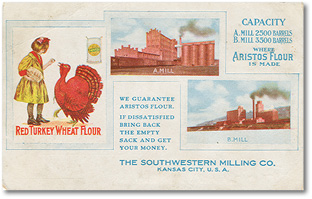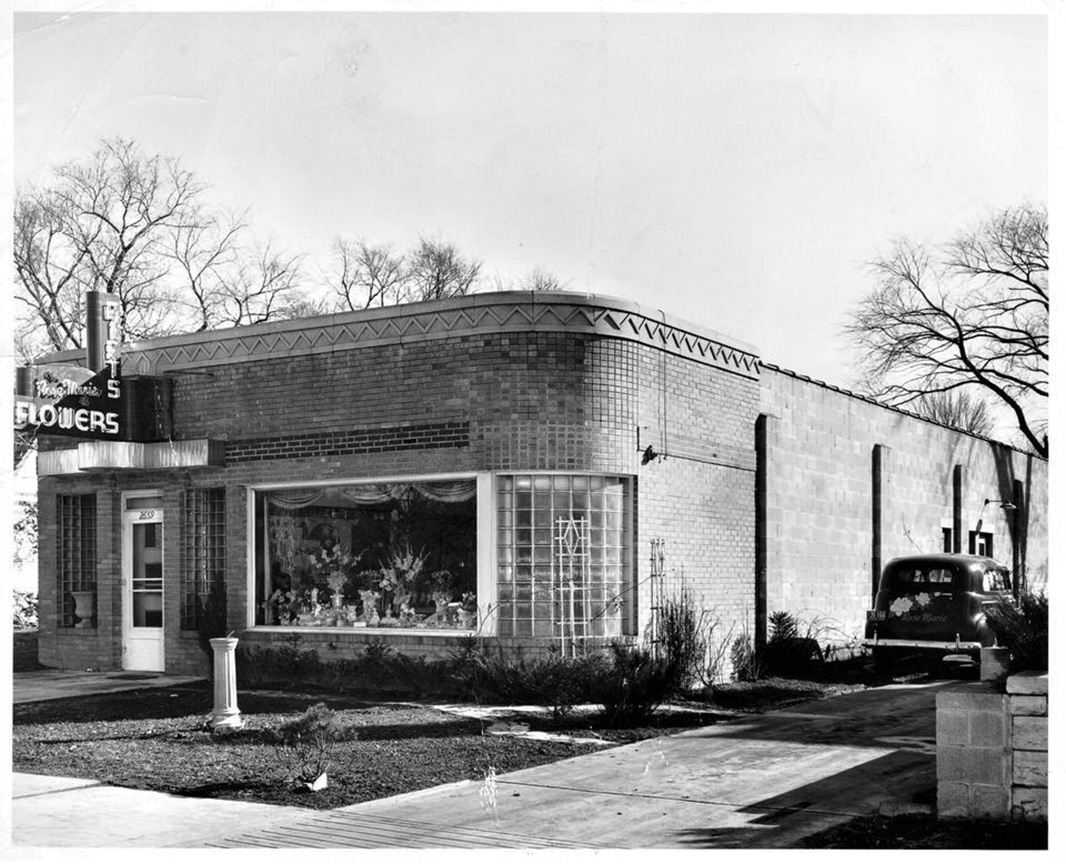
By MICHAEL BUSHNELL
Northeast News
July 2, 2014
This week, we spotlight a promotional postcard for the Southwest Milling Company showing the company’s A and B Flour Mills. The “A” mill was built in 1913 near present day 18th Street and Kansas Avenue on the banks of the Kansas River. Advertised as fireproof and of the most modern construction, the plant was Southwestern Milling’s flagship plant along the Kaw River for many years.
At its peak, its output was roughly 4,000 barrels of flour a day. The company’s “B” mill, according to City Directories in the Missouri Valley Room of the Kansas City Library, was located near 25th Street and State Line Road. According to the information on this postcard, it boasted an output of 3,500 barrels.
The banks of the Kansas River near its confluence with the Missouri had already begun to turn from pristine woodland to heavy industry at the turn of the 20th century. By 1911, more than 17 flour mills were located along its banks in Armourdale, Argentine and Kansas City, Kan., all of which were separate incorporated entities at the time. Those mills collectively could process and store more than 6.5 million bushels of wheat per day.
Southwestern Milling advertised that no hand touched their wheat during the milling process in order to maintain the most sanitary conditions for food production. By 1928, the “A” mill had almost doubled in size. Also during 1928, Southwestern Milling was acquired by Standard Milling, making it the largest processor of Turkey Red Winter wheat – hardy strain of winter wheat brought to central Kansas by Russian Mennonites in the 1880s – in the world.
Due to their location on the banks of the Kansas River, most every flour mill in Argentine and Armourdale sustained serious damage during the flood of 1951. While some mills and meat processing plants reopened after the swirling, muddy waters receded, Standard’s “A” mill however, ceased operation citing the extreme expense of rebuilding. All of its machinery was dismantled and either sold or sent to other mill locations in the Midwest.
This postcard, published in roughly 1917, boasts that “Aristos Flour is guaranteed! If dissatisfied, bring back the empty sack and get your money!”
The “A” mill stood vacant for more than 30 years, and most of the grain elevators shown in this postcard were razed in order to make way for the new “18th Street Expressway.” The plant reopened about 10 years ago and currently operates under the Corbion Caravan Ingredients brand, a manufacturer of baking additives sold primarily to wholesale bakers across the country. The company boasts nine locations across the United States with over 700 employees.
















